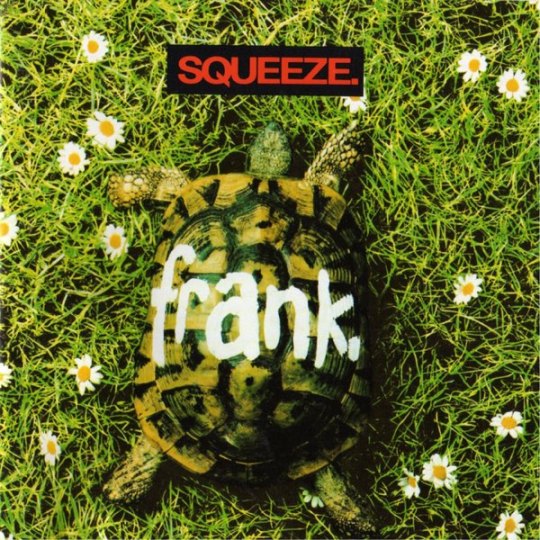#uk squeeze
Text

Glenn Tilbrook and Chris Difford at a festival in the early, formative days of Squeeze.
#Squeeze#uk squeeze#squeeze band#pFFFt#I don’t know why it’s so funny#(actually I do)#oh lord have mercy#for a band that’s seldom thought of for hippie culture…#Chris Difford#Glenn Tilbrook
59 notes
·
View notes
Text




Glenn Tilbrook of Squeeze in the music video for 'Tempted'
#ba da 's and woohoohoo's :)#he's so cute and dare i say hot at the same time#glenn tilbrook#squeeze band#squeeze#uk squeeze#my gifs
46 notes
·
View notes
Text

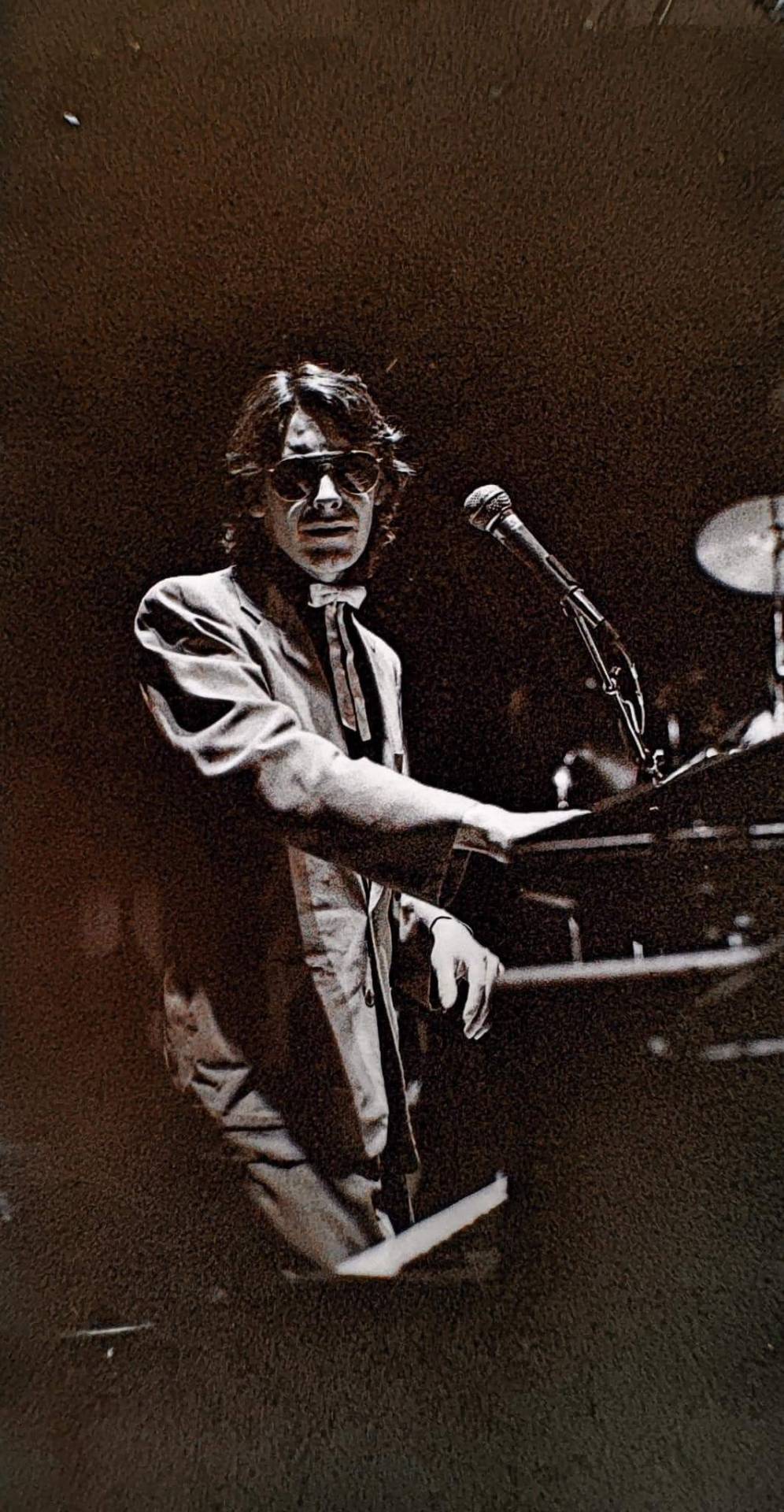
Jools Holland serving cunt, taken by Ed Rottinger
#this one goes out to annie <3#but also genuinely think he looks so cool here#squeeze#uk squeeze#jools holland#80s
12 notes
·
View notes
Photo



there’s a stain on my notebook where your coffee cup was,
and there’s ash in the pages, now i’ve got myself lost.
GLENN TILBROOK in “Black Coffee in Bed” (1982).
#glenn tilbrook#squeeze#uk squeeze#new wave#80s music#i was not ready for this in HD i am passing away with immediate effect thank you and goodbye#my gifs
50 notes
·
View notes
Text
Ranting and Raving: "Up the Junction" by Squeeze
youtube
Squeeze are one of the great unsung bands of the second British Invasion. A band that has never gotten their well-earned praise.
Squeeze were never going to be huge megastars. Their discography is too varied, their humor too odd and too British, and their songwriting was of a kind that didn't really appeal to American sensibilities. Though the band managed to have a few hits here in the states ("Black Coffee in Bed," "Hourglass," and, most importantly, "Tempted") they never got much further than that. Part of me thinks they didn't really care about conquering America since they never bothered to try and appeal to us. Certainly songs like this were never going to do it. There's British slang all over this song that makes no sense unless you head on over to Genius and look at some annotations.
But it's songs like this one that I think made Squeeze a special band. A different band. These were guys that wrote songs with a subtle and understated magic to them.
Squeeze's songs were created through the songwriting partnership of dual guitarists/vocalists Chris Difford and Glenn Tilbrook. Unlike Lennon/McCartney, it's very easy to figure out which one did what. Difford handled the lyrics, Tilbrook then took those lyrics and set them to music. "Up the Junction" is one of the best things they wrote together and it deserves some praise.
So, why don't we start with defining what the phrase "up the junction" means. It's simple. It means: Up shit creek without a paddle. Boned. In a mess of trouble. You're screwed, basically. The phrase doesn't appear until the end and it isn't until the end where it's revealed why the song is called that.
I said Squeeze's songwriting was of a kind that didn't really appeal to American sensibilities and that's clear right from the first listen. Americans love a chorus they can sing along to. Tom Petty's famous songwriting philosophy was, "Don't bore us, get to the chorus." Squeeze breaks that rule by virtue of not having one. The song has six verses and a bridge that all have the same melody and progression through the song's 3:05 runtime. Tilbrook settles on one core groove and while drummer Gilson Lavis and keyboardist Jools Holland add little flourishes and extra spices here and there, the song rarely changes. This would normally be detrimental and lead to the song being boring, but the lack of chorus makes it stronger. Difford explained that he and Tilbrook agreed that having repeated lyrics would break the flow of the song, to which he is absolutely right. This song never feels like it's overstaying its welcome. The story remains engaging the entire time and nothing derails it. Difford and Tilbrook cited Bob Dylan's "Positively 4th Street" as an influence on "Up the Junction," which fits because that's another song that tells a full story without a chorus. Roxy Music's "Virginia Plain" is structured the exact same way.
Lyrically, this is one of Difford's best and it's a masterclass on how to tell a well written, well focused, and well paced slice-of-life story in just three minutes. The verses tell the story of a guy who met a girl from Clapham (a district in London), fell in love with her, had a daughter with her, and proceeded to then lose his girl and daughter when he became an alcoholic and they left him.
Each verse contains eight lines a piece, with each one focusing on a different part of this couple's relationship. Verse 1 they meet. Verse 2 they move in together. Verse 3 the guy gets a job and his girl gets pregnant. The bridge has the guy work through the winter and the girl moving forward with her pregnancy. Verse 4 has their daughter be born. Verse 5 describes the guy's alcoholism and his family leaving him. The final verse details his current state of being alone without his girl and their child. Each of these verses are perfect. There is no extra fat or any needless detail. Difford could've published these words strictly as a poem and it wouldn't be diminished. This song is also a great example of how clever he could be with his words. Like here:
"She gave birth to a daughter
Within a year a walker
She looked just like her mother
If there could be another"
It's stuff like this that's simple, but very very sweet. It helps paint a picture and while some of Difford's lines suffer from being written by a young songwriter early in his career ("We stayed in by the telly / Although the room was smelly" is a bit of a silly rhyme) it never detracts too much overall.
The only time the song goes through any significant change musically is during the final verse, where Tilbrook and Difford stop playing their guitars and let Holland fill the empty space with his keyboard taking over command. It creates a more somber mood compared to the rest of the song and allows the music to better reflect the final lyrics, which is about being left alone and having regret for how things fell apart and how he probably won't be able to fix it.
"Alone here in the kitchen
I feel there's something missing
I'd beg for some forgiveness
But begging's not my business
And she won't write a letter
Although I always tell her
And so it's my assumption
I'm really up the junction"
Suddenly, the title's meaning becomes very clear and it's heartbreaking.
What Squeeze pulls off here is a fantastic tale of love and loss in a short amount of time. It's pop music at its absolute finest. It's a song that deserves more love. Hell, the band who made it also deserves more love. It saw success in its day, becoming one of Squeeze's highest charting U.K. hits, peaking at #2 in 1979. Now, all these years later, it remains one of the band's best songs. What you get with "Up the Junction" and others are works from two songwriters who sought to push the boundaries of the average song structure and were always trying to play with different sounds and ideas to see what might land and what might not. Squeeze were a band of underdogs and this song wonderfully shows what these guys had to offer.
Squeeze was always cool for cats and they'll remain cool for you, too.
5 notes
·
View notes
Text
good omens bitches are sleeping on the song "tempted" by squeeze
2 notes
·
View notes
Text
Listened to a sampling of Squeeze's Tempted in a background dive discussion YouTube video a few weeks ago, and realizing: wait a minute!?! Wait, no this isn't the one I know?! But I know the voice?!?? Stupid TikTok strikes again... And I've listened to this man's voice with Mike & The Mechanics for nearly 2 decades, found Ace along the way, but not Squeeze? How?! Anyway, I love his voice.
1 note
·
View note
Text
Why increasing public sector wages won’t cause inflation.
One of the current Tory arguments about wages is that if they increase public sector wages, inflation will go up. Even by their own logic, this is clear nonsense, and there’s a reasonably strong argument that increasing public sector wages could actually stimulate the economy too.
So, where does this idea come from? Well, it comes from business, where the idea is that if you increase wages, some or all of that price rise gets passed on to the consumer, and prices go up. Of course, even this is false, because in many cases the consumer will say “fuck that” and not buy the product, or choose a cheaper alternative. Thus, the company must instead reduce profits to retain consumers (and let’s not be fooled, a lot of companies are still making huge, untaxed profits right now). Or they cut hours and provide a less good service.
But this doesn’t apply in the public sector. Increasing wages of people in education, or in healthcare or in the civil service etc has no direct impact on the price of anything, because the public don’t directly buy our services.
However, it may actually stimulate the economy more widely.
In general, when you give rich people more money, they save it, or possibly “invest it”- meaning it basically goes out of circulation and doesn’t further benefit anyone.
If you give people right at the bottom more money, then they almost inevitably spend it right away, usually on essentials- which benefits the economy because more money is being spent, so companies have more money to pay wages, etc etc. But this doesn’t work soooo well, because people always need essentials, and will find some way of getting them, generally, if they possibly can. Of course, we want a world where everyone has access to these essentials easily, but we’re trying to think like an economist right now.
Most public sector workers are somewhere between these two extremes although some are definitely in the second category.
Right now, however a lot of people like teachers, nurses, junior doctors, junior civil servants etc etc are “feeling the squeeze”- caught between high housing prices, rising bills and stagnating wages, there’s less and less money to spend on “luxuries”. People might cut back on eating out, on take aways, on buying new clothes, on buying presents, on “treats”, on non-essential travel, on buying things like books and nice stationery, on make up and toiletries, on haircuts and getting their nails done- the list goes on.
These things aren’t essential to survival, you can do without them. So if you can’t afford to buy them, you don’t. But of course, if a lot of people stop buying these things at once, it hurts the economy. Companies that make or sell these things see profits go down, perhaps reduce hours or lay off staff, which in turn gives them less money to spend, and it all becomes a vicious cycle which shrinks your economy- i.e. the worst possible thing if you’re a Tory, supposedly.
(Investing in education and health also has long term pay off, but anyway).
If the people at the bottom and the people a bit above the bottom had a bit more spare cash, there would be more spending, and more businesses would see a proportion of that spending. And so they can offer staff more hours, pay higher wages, employ more staff. There’s more money going around and it’s a virtuous circle. The economy grows.
Would some companies then put their prices up? Maybe. Companies will often raise prices whenever they can. But the pressure to increase prices tends to come from increased costs, not increased custom. And it would matter less because everyone or nearly everyone would be earning more.
Cutting and cutting just leaves everyone poorer. We know this.
So why do the Tories keep going on TV and spouting bollocks? It might be because they don’t actually understand the economics of the situation (scarily likely) but it’s also likely to be ideological. They’d rather “win” the fight with the unions than do something that could actually help everyone.
#uk politics#cost of living crisis#economics#tories#public sector pay#wage stagnation#squeezed middle#capitalism#like#this might be the most capitalist thing I have ever written#but#I feel we have to counter the narrative at every point
334 notes
·
View notes
Text



The celebrations begin ✨
This has been a long time request 🚿
Treat me ~ Tip me
#Steamy. Boil me until i fall apart in the soup.#This shower is big enough for three. If you squeeze.#30k followers celebrations!!#Lets celebrate what really matters this festive season. Soapy bewbs. And me.#Send me tips or treats to help me celebrate! Your continued support and appreciation give me life 💕🥰#Satans knitwear#Alt pinup#Shower time!!#Steamy#bi girl#uk girl#cheeky#wlw#Would u join me in the shower??? Y or n??
336 notes
·
View notes
Text


📸 Credit: Alex Haskett (@ alexhaskett on Twitter)
#orange cassidy#aew#aew dynamite#james cipperly#all elite wrestling#oc#freshly squeezed#wrestling#revolution pro wrestling#rev pro uk#rev pro#he's just a stunning & fascinating man#i just think he's neat
25 notes
·
View notes
Text

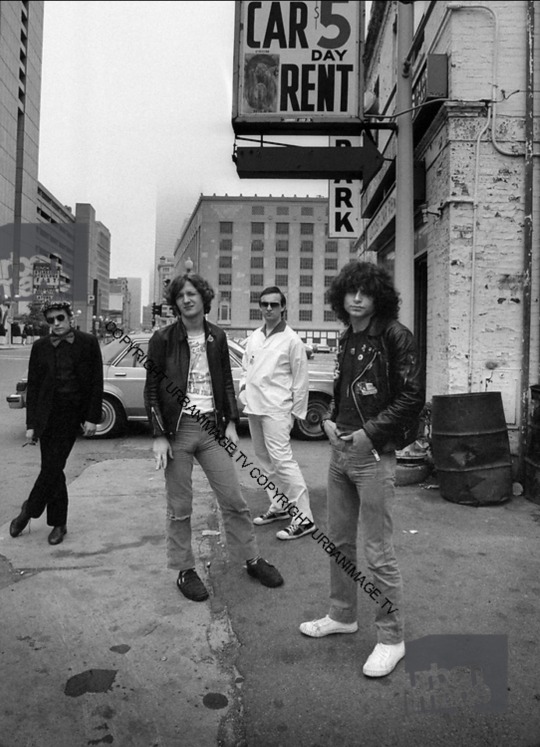
1978 Debut-Album era Squeeze
(I could not find color versions of these photos like the few floating around from this shoot that are in color… and unfortunately, the only versions I can find of some of these have watermarks covering faces -but I figured I’d share them -and I’ve got a few more to post later)
#Squeeze#uk squeeze#squeeze band#Jools Holland#Gilson Lavis#Chris Difford#Glenn Tilbrook#Harry Kakoulli#posting in smaller sets and separating portrait vs landscape so on some Tumblr formats they’re not cut-off in preview form
14 notes
·
View notes
Text
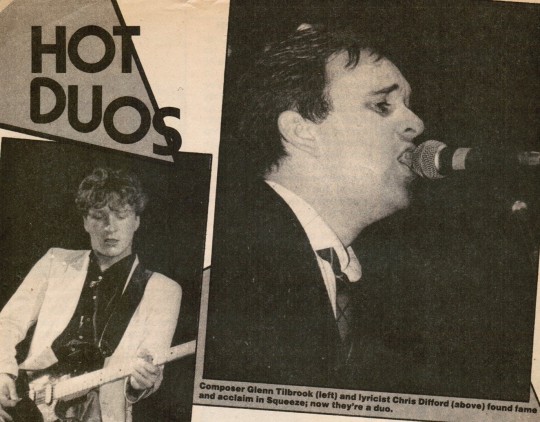
Formerly of Squeeze (at the time) presenting: Difford and Tilbrook for 'Hot Duos'
#HOT DUO AM I RIGHHHHHTT ahhhhhhh#this is from ebay btw#glenn tilbrook#chris difford#difford and tilbrook#squeeze#squeeze band#uk squeeze#what does 'hot duos' mean?#potential answers from myself:#attractive duo? temperately hot? or hot gossip (meaning they're popular?)
12 notes
·
View notes
Text

Glenn Tilbrook taken by Ed Rottinger
#for the first time in history idk when this squeeze photo was taken 🔥🔥🔥 nd this shows im on the road to recovering my mental health#kidding but new pic from the fb group !!!!!!!#squeeze#uk squeeze#glenn tilbrook#80s
11 notes
·
View notes
Photo
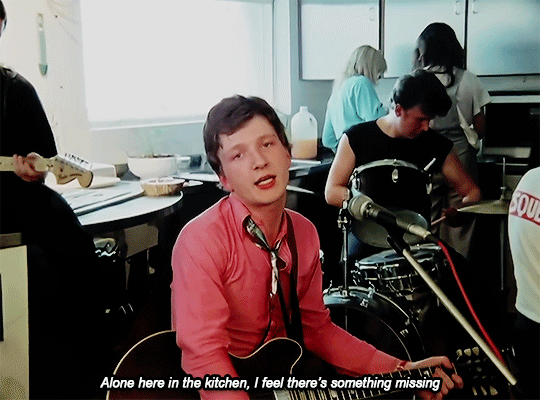
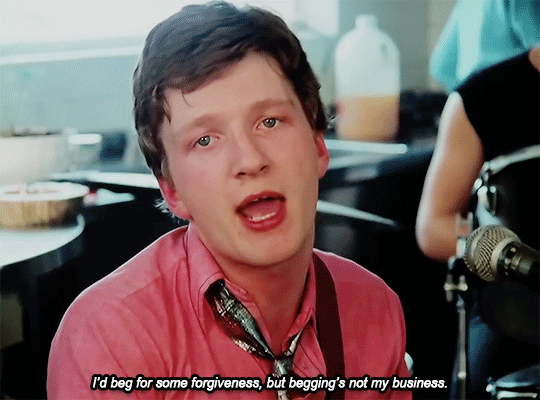
and she won’t write a letter, although i always tell her
and so it’s my assumption, i’m really up the junction.
#glenn tilbrook#squeeze#uk squeeze#new wave music#new wave#80s music#going feral over the remastered videos genuinely best christmas present ever#my gifs
28 notes
·
View notes
Text
joni mitchell was right they are paving paradise and putting up a parking lot
#or a car park. in mine native tongue.#we have a housing crisis but the solution to that is regulate landlords not to put up a luxury development on every other field...bro......#biodiversity is plummeting here bc of intensive farming and overdevelopment but the gov continues to do Nothing but accelerate the decline#this gov is obsessed with squeezing more and more productivity out of the land and failing that‚ development#they simply do not care#call me a nimby but i have to ask the uk government what kind of world are we leaving for our grandchildren. what the fuck are we doing#i feel this is niche bc it's a controversial topic here in the uk and noone talks abt urban sprawl as an environmental/social issue on here#but its something that makes me so insane#ukpol
12 notes
·
View notes
